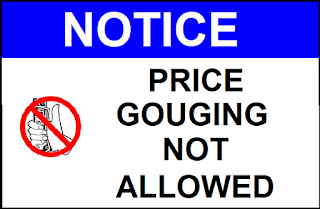While the full impacts are yet to be resolved, specialists are foreseeing that the coronavirus will have an enduring, incessant effect on survivors. As per a Willis Towers Watson examination, in addition to health concerns, these people also face monetary concerns: medical and prescription drug costs for individuals with COVID-19 could spand $250 to $100,000.
An ongoing report by the Integrated Benefits Institute (IBI) additionally found that the complete expense of COVID-19 to employee benefit plans could surpass $23B, excluding auxiliary costs, for example, paid family leave time. This is notwithstanding other health insurance bills businesses were at that point confronting prior this year. Nonetheless, it is conceivable to lessen the expense of pharmacy benefits without increasing employee cost share or reducing benefit levels.
Carve-Out the Pharmacy Benefit
PBM programs typically function in two ways. They are either “carved in”, provided by the health insurance company or “carved out”, provided independent of insurance. Whether the pharmacy benefit plan is self-funded or fully insured, any employer with more than 100 active employees should consider and investigate a carve-out strategy for their pharmacy benefits.
A carved out program provides better cost control and transparency, technology and services, as well as information and reporting. Health insurers may bundle the two programs and subsidize some of the pricing from one service with that of another.
For companies with a carved in program, there may be concerns about changing to a carved out program due to a perception that additional time and resources will be needed, but I have seen that on a day to day basis, there is little difference in having a separate PBM program. The functions are the same. Forgoing retail pharmacy rebates for admin fee credits on the medical side is another non-fiduciary pricing game. With opaque contract language and subsequent hidden cash flows, the PBM and/or carrier will recoup those credits you thought were going to reduce costs.
Among the advantages of a carve-out are the following:
2. Carved-out Specialty Rx
3. Customized Clinical Programs
4. Lower Pharmacy Costs
5. Better Data Rights
6. More Detailed Analytics
7. More Transparency
As you can clearly see, there are significant advantages to pursuing a carve-out strategy, both for the plan sponsor and plan participants. PBMs will generally provide transparency and disclosure to a level demanded by the competitive market and rely on the demands of clients in negotiating their contracts. The best proponent of radical transparency or lowest net Rx cost is informed and sophisticated purchasers of PBM services.
Make a Good Formulary
A formulary is a list of drugs favored by the PBM for their clinical effectiveness and cost savings. Pharmaceutical manufacturers of specialty and branded drugs often promise financial incentives to have their drugs featured on the formulary. Drug formularies can be open, incented, closed or hybrids. There are five factors necessary for the makings of a good formulary. These include:
1. Multiple enforcement mechanisms
2. A minimum 5 tiered list of drugs
3. Understanding how the drugs are assessed
4. A firm dispute resolution process
5. An expedited appeal process
An enforcement mechanism is particularly important. Certain drugs require prior authorization before they are covered under the drug benefit. Prior authorization is the pre-approval of a drug by the PBM before a pharmacy can dispense it. Not all enforcement mechanisms are created equally. Just because your PBM employs these tools doesn’t mean they are being maximized or effective. Be sure to put in place criteria to measure the PBMs execution of enforcement mechanisms.
Do Business with a Fiduciary PBM
Approximately one year ago, Ohio’s Attorney General announced a four-part proposal calling for quick action from the state’s legislature to shine a bright light on PBM contracts. The goal was to cut down on the hidden cash flows to non-fiduciary PBMs. AG Yost’s proposal called for:
-
Drug purchases in the state to be conducted under a master PBM contract that is administered by a single contact point
-
Ohio’s Auditor of State to have full power to review all PBM contracts, purchases and payments
-
The state to prohibit nondisclosure agreements on drug pricing.
-
PBMs to operate as fiduciaries, uh-oh!
So, what is the difference between a fiduciary PBM and one that isn’t? There are some very big differences.
-
Fiduciary PBMs must provide full disclosure
-
Fiduciary PBMs provide more transparency
-
Fiduciary PBMs are a better value (ex. less reliance on PBM consultants or other vendors to reduce drug costs)
-
Final plan costs can be significantly lower with Fiduciary PBMs due to elimination of hidden fees and maximization of clinical programs including formulary management
In a fiduciary relationship, one person, in a position of vulnerability, justifiably vests confidence, good faith, reliance and trust in another whose aid, advice or protection is sought in some matter. In such a relationship, good conscience requires the fiduciary to act at all times for the sole and interest of the one who trusts.
A fiduciary ideally would not have a conflict of interest. It has been said that fiduciaries must conduct themselves “at a level higher than that trodden by the crowd” and that “[t]he distinguishing or overriding duty of a fiduciary is the obligation of undivided loyalty.
Pharmacy Benefit Managers whose business models are predicated on hidden cash flows will be very reluctant to provide full disclosure. A leopard cannot change its spots. However, plan sponsors who are relentless in their pursuit of radical transparency can significantly reduce pharmacy spend without sacrificing benefit levels or asking employees to pay more by doing business with a fiduciary-model PBM.

